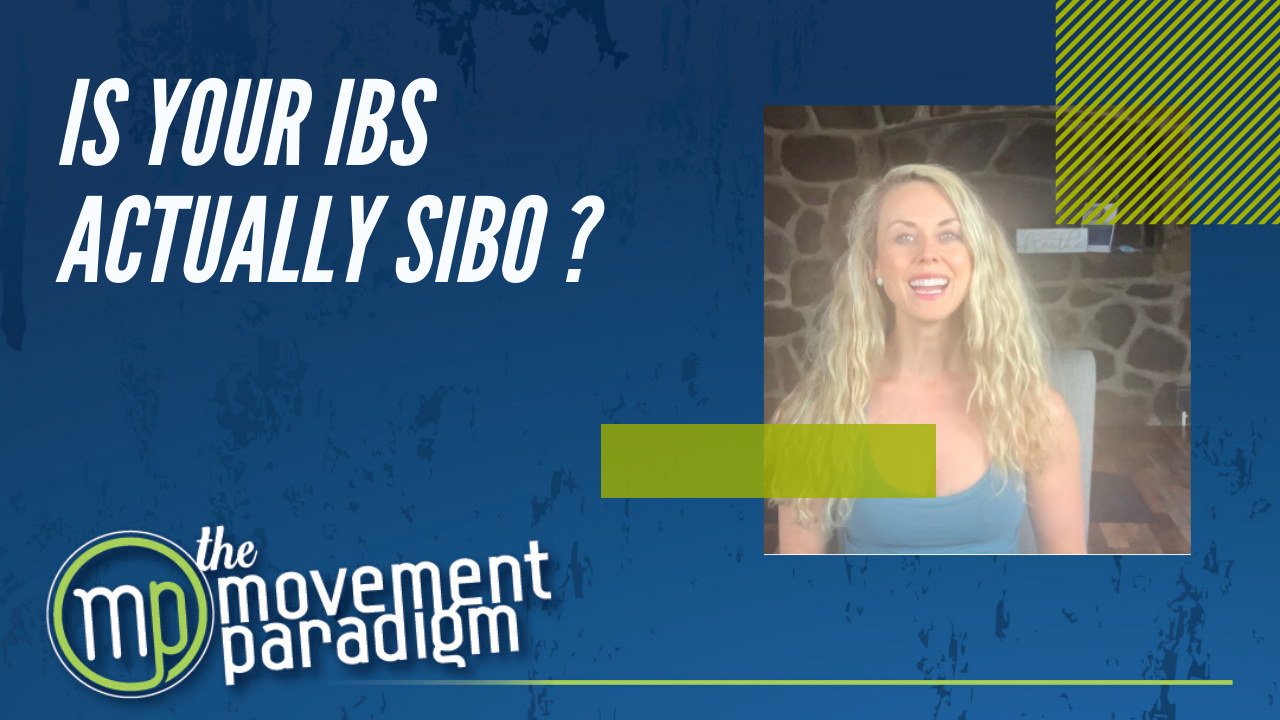Have you been experiencing abdominal symptoms? Bloating? Cramping? Indigestion? Abdominal pain? Or maybe you are experiencing anxiety and depression? If so, you should know about small intestinal bacterial overgrowth (SIBO), and how it is most often under-diagnosed as a source of irritable bowel syndrome (IBS).
Many individuals have a diagnosis of IBS that they have been given at some point in their lives by a doctor, and they are just trying to manage it on their own with no real solution to addressing the root cause. In most cases, IBS is in fact SIBO.
SIBO is a serious condition affecting the small intestine and happens when bacteria that normally grow in other parts of the gut, grow in the small intestine. When you are diagnosed with IBS it’s really important to make sure that you get the proper testing and determine if this is one of your root causes. Let’s now talk about how you can tell if your IBS is actually SIBO.
Symptoms:
If you’re experiencing anxiety, depression, bloating, digestive issues, constipation, diarrhea, abdominal pain, overall puffiness and discomfort around the abdomen, and even such symptoms as heartburn and acid reflux, it’s really important to get properly evaluated.
Testing:
You will have a breath test, which will determine if you have methane or hydrogen gas in your gut. The breath test will be over a series of a few hours. After you ingest lactulose, depending on how it ferments in your gut, will determine what type of gas is produced and this will indicate whether or not you have SIBO.
Treatment:
If you have a diagnosis of SIBO or IBS, and you’re in the process of trying to determine how you can feel better, it’s highly recommended to go on a low FODMAP (fermentable oligosaccharides, disaccharides, and polyols) diet. These are hard to digest fibers and sugars, and therefore do not pass through the small intestine well. In the colon, the high FODMAP foods will ferment and cause gas, and in the small intestine, they will pull water causing bloating and stretch in the intestinal area.
The first part of the low FODMAP plans a complete elimination of any moderate to high FODMAP foods. After the elimination phase, which can be anywhere from two to six weeks, then you can begin a reintroduction. You would reintroduce one FODMAP food at a time and see how your body tolerates it. After you’ve done that you can personalize your plan, and determine what foods are aggravating you and contributing to some kind of bloating, flatulence, abdominal pain, etc. The first goal of the program is to decrease inflammation and symptoms and try to settle your system down. Once you do that, you can begin to transition into the personalization of the food plan.
After you’ve determined you may have SIBO and you have initiated a low FODMAP plan, you want to follow a 5R protocol for restoration. So, that would be removing the inflammatory triggers, replacing the digestive enzymes, reinoculating with good bacteria, replacing any nutrients that you may be deficient in, and also rebalancing your lifestyle factors. After you have worked through a 5R protocol, there is a chance that you may need to take an antibiotic, whether that’s herbal or conventional. The research shows that both an herbal or conventional antibiotic can be equally effective. It does depend on if your body is ready to support it, and if you are well enough to be able to handle the antibiotic.
Summary:
If you are a person that has had a diagnosis of IBS, or you’re dealing with a lot of abdominal symptoms and you really want to get to the bottom of it; it’s really important to consider SIBO as one of the possibilities. You want to make sure that you’re using this as a possible diagnostic tool to rule in or rule out, and to treat the root cause, as opposed to just treating your symptoms.
Reach out for a 15-minute FREE discovery session to see how we can help you on your journey.
For more content, make sure to subscribe to our YouTube channel here.
Other things that may interest you:
What do your gut bacteria do? | 10 Functions of Gut Bacteria | Microbiome

